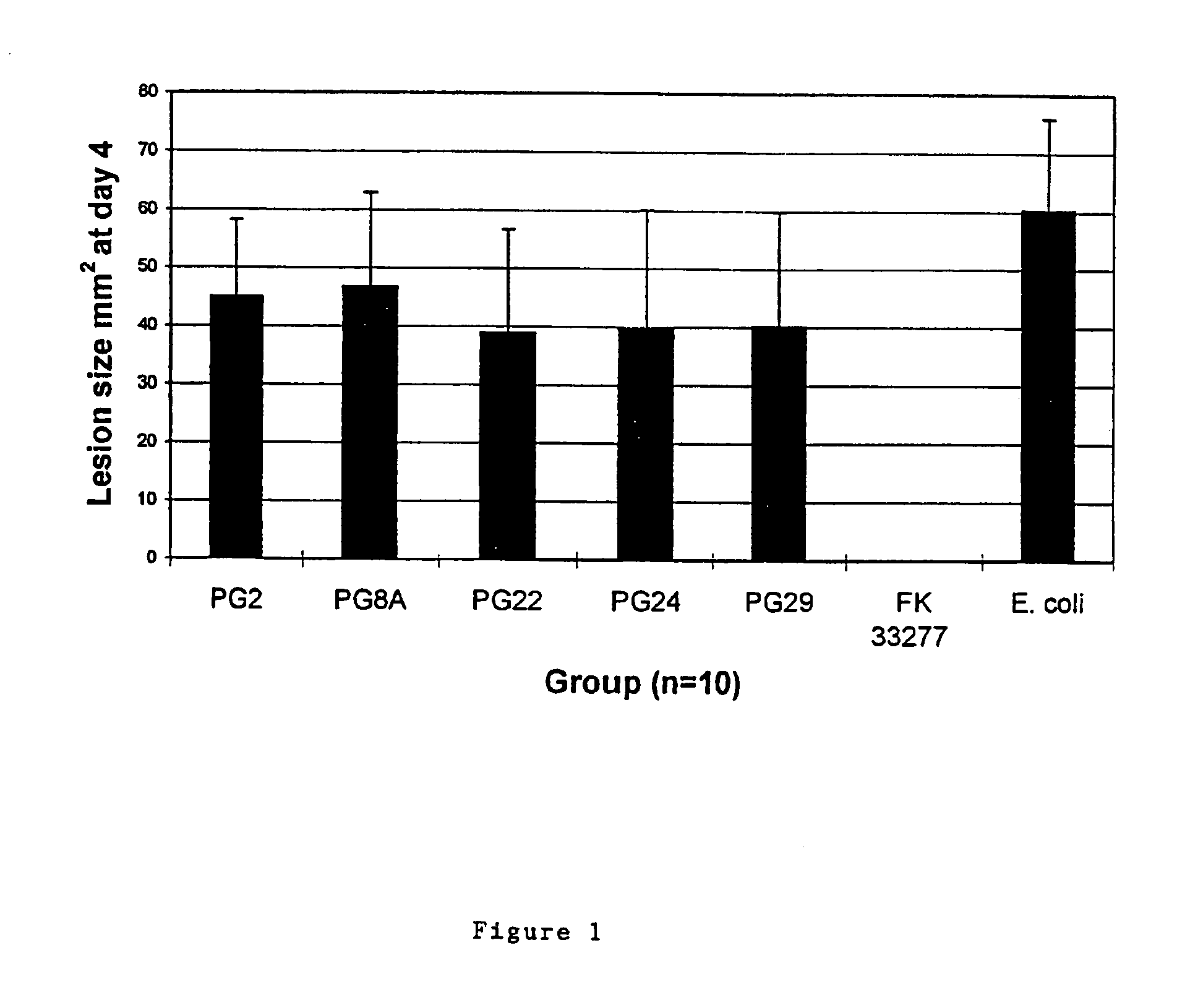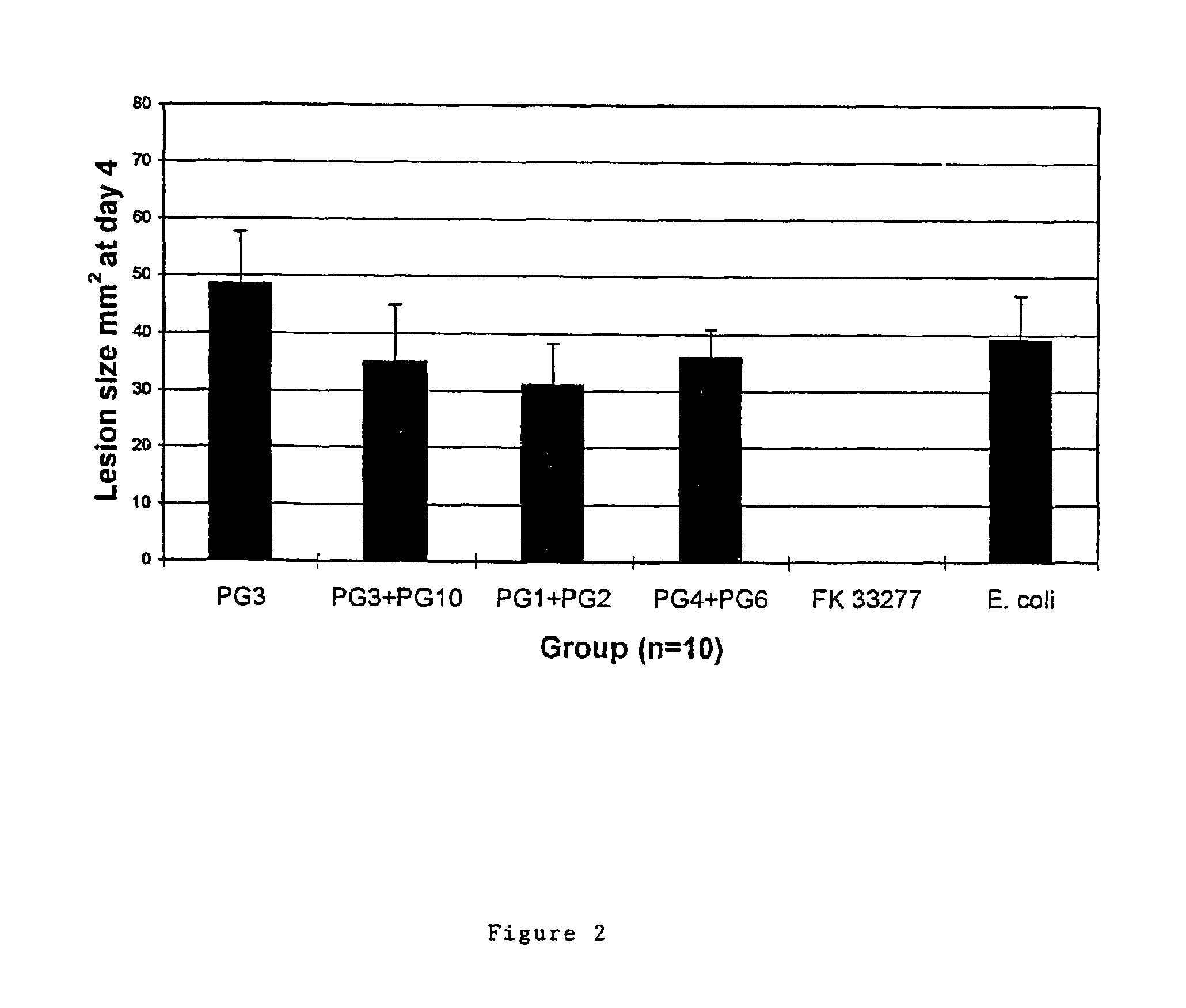Porphorymonas gingivalis polypeptides and nucleotides
a technology of porphorymonas gingivalis and polypeptides, which is applied in the field of p . gingivalis nucleotide sequences, p . gingivalis polypeptides and probes, can solve the problems of difficult isolation and growth, major public health problems, and difficult identification of these molecules by conventional methods
- Summary
- Abstract
- Description
- Claims
- Application Information
AI Technical Summary
Benefits of technology
Problems solved by technology
Method used
Image
Examples
Embodiment Construction
Definitions
[0032]A purified or isolated polypeptide or a substantially pure preparation of a polypeptide are used interchangeably herein and, as used herein, mean a polypeptide that has been separated from other proteins, lipids, and nucleic acids with which it naturally occurs. Preferably, the polypeptide is also separated from substances, e.g., antibodies or gel matrix, e.g., polyacrylamide, which are used to purify it. Preferably, the polypeptide constitutes at least 10, 20, 50 70, 80 or 95% dry weight of the purified preparation. Preferably, the preparation contains: sufficient polypeptide to allow protein sequencing; at least 1, 10, or 100 mg of the polypeptide.
[0033]A purified preparation of cells refers to, in the case of plant or animal cells, an in vitro preparation of cells and not an entire intact plant or animal. In the case of cultured cells or microbial cells, it consists of a preparation of at least 10% and more preferably 50% of the subject cells.
[0034]A purified or ...
PUM
| Property | Measurement | Unit |
|---|---|---|
| temperature | aaaaa | aaaaa |
| ionic strength | aaaaa | aaaaa |
| pH | aaaaa | aaaaa |
Abstract
Description
Claims
Application Information
 Login to View More
Login to View More - R&D
- Intellectual Property
- Life Sciences
- Materials
- Tech Scout
- Unparalleled Data Quality
- Higher Quality Content
- 60% Fewer Hallucinations
Browse by: Latest US Patents, China's latest patents, Technical Efficacy Thesaurus, Application Domain, Technology Topic, Popular Technical Reports.
© 2025 PatSnap. All rights reserved.Legal|Privacy policy|Modern Slavery Act Transparency Statement|Sitemap|About US| Contact US: help@patsnap.com


